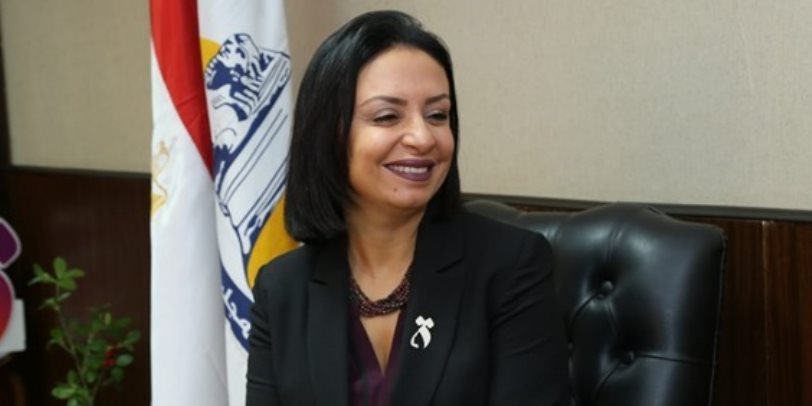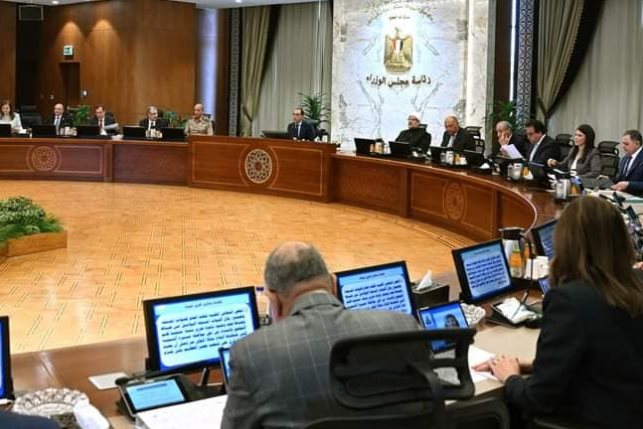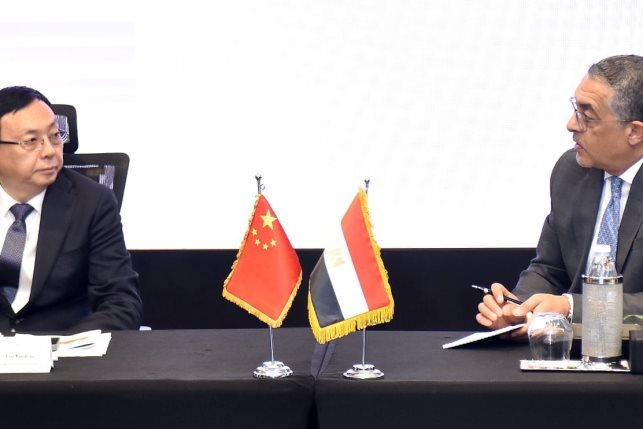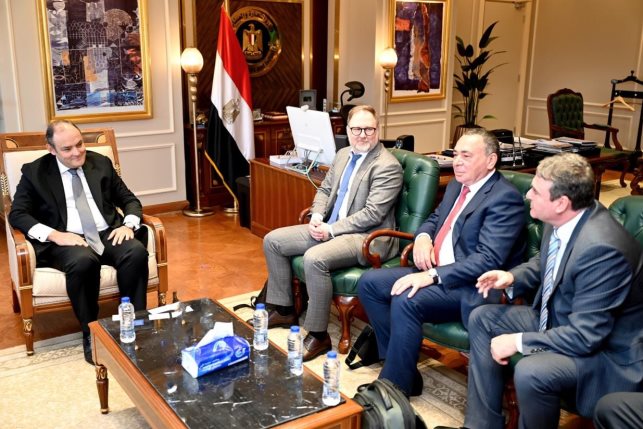Maya Morsy on Women’s empowerment amidst the pandemic
President of Egypt’s National Council for Women speaks about the numerous programs and initiatives tackling women’s empowerment in light of the challenges posed by the ongoing Covid-19 pandemic

Originally in our March – April 2021 Issue. Click here to see the latest release
The coronavirus pandemic has imposed severe challenges on women around the world, from affecting levels of workforce participation to domestic violence.
In response, Egypt’s National Council for Women (NCW) has been working extensively to mitigate Covid-19 challenges, while pursuing its mission to empower women.
We sat down with Maya Morsy, the council’s president, to discuss the effects of the coronavirus pandemic on women, and the government’s commendable response efforts.
How do you see the impacts of Covid-19 pandemic on women in Egypt?
The pandemic has a great impact on women, given that women make up around 42.4 percent of physicians and 91.1 percent of nursing staff working for the Ministry of Health.
Additionally, 73.1 percent of nursing staff in hospitals and therapeutic facilities in the private sector are women. Women in the health sector are more likely to be exposed to the virus, handling enormous stress balancing paid and unpaid work roles.
The pandemic also poses a serious threat to women’s engagement in economic activities, especially in informal sectors. In Egypt, we have 18.1 percent of women as heads of households, 40.9 percent of females’ total non-agricultural employment is in informal employment and 33.9 percent of females’ employment is precarious employment.
Moreover, Egyptian women represent 70 percent of the paid care sector workforce, mainly as teachers, health and social workers. Women are also almost four times more likely than men to work in the paid care sector.
Tell us about the NCW’s efforts to help reduce the impact of the aforementioned challenges on Egyptian women?
When coronavirus hit Egypt in March 2020, the NCW drafted the report “Egypt’s rapid response to women’s situation during Covid-19 outbreak,” which covered the why and how of the pandemic’s impact on women, in addition to suggesting measures to be put in place to support women and consider their needs while containing the virus.
The document was finalized on March 31, and immediately sent out to all concerned authorities and entities in Egypt.
The NCW also drafted the Women Policy Tracker tool to monitor all the measures and policies taken by the Egyptian government to tackle women’s needs. Five editions have been published, covering the period between March 2020 and January 2021.
Egypt was the first country in the world to draft a policy note and a policy tracker focused on women’s needs during the coronavirus pandemic.
As per NCW’s mandate, further efforts were made to support women socially and economically. Electronic awareness raising programs were conducted on means of protection from Covid-19, psychological and social support, as well as means of protection from violence, especially cybercrimes — given the high rates of internet usage as a result of social distancing restrictions.
The NCW has also been referring women in need from all over the 27 governorates of Egypt to the concerned entities, whether in response to social or economic needs.
The NCW’s training programs were digitized to adapt to lockdown circumstances; and the council has also been a member of the ministerial committee on informal workers led by the Prime Minister of Egypt to support informal workers during the pandemic.
The Egyptian President has dedicated cash transfer support to informal workers worth LE 500 per month; and 47 percent of the beneficiaries of these packages are women.
Moreover, the NCW has strengthened the infrastructure of its Women Complaints Office (WCO) and its referral pathway to adapt and receive women’s complaints and inquiries, responding effectively and efficiently.
The NCW, co-chairing the National Committee to Eradicate FGM, has also worked with the concerned entities to propose a stricter legislative amendment for female genital mutilation in 2020.
Moreover, the NCW is conducting door-to-door campaigns to raise women’s awareness about the virus, its implications and proper referral channels.
How many complaints has the NCW received since the start of the pandemic? Have you noticed a change in the type of these complaints?
The infrastructure of the NCW’s Women’s Complaints Office (WCO) has been enhanced. The office has 27 branches all over the governorates of Egypt.
In 2020, the complaints office received its highest outreach levels, whether through phone calls, walk-ins, or reports through social media.
The office received around 66,000 complaints and inquiries in 2020, compared to 14,700 in 2019.
It was noticeable that 80 percent of the inquiries/complaints received during the year 2020 were about economic difficulties that women faced as a result of the pandemic.
The WCO has strong networks and linkages with several concerned authorities that worked even closer during the pandemic; and all of the calls received were either resolved by NCW, if its within its mandate, or referred to the concerned entities with close follow-up to make sure women got the services that they are entitled to.
In line with the global trend that came with coronavirus restrictions, the percentage of violence against women, and domestic violence in particular, rose. Hence, the NCW cooperated with Baseera and UN Women to conduct a phone survey during the period from April 4 to 14, tackling the effects of Covid-19 pandemic.
The survey included 1,518 women with a minimum age of 18 years old; and the results confirmed that the pandemic contributed to higher levels of gender-based violence and economic precarity, among other impacts. The results showed that 7 percent of the wives reported being subjected to emotional or verbal violence from their husbands, while 19 percent reported increased violence among family members.
Additionally, 72 percent of the respondents believed that the family’s income was affected by the crisis.
What files has the NCW given priority to in 2021? And what is the biggest challenge that women are going to face in 2021?
The NCW’s priority this year is economic empowerment and financial inclusion for women. Given the Covid-19 pandemic, we need to focus more strongly on providing economic opportunities for women, and including them in the financial systems.
We have signed an MOU with the Central bank of Egypt to work on upscaling the village savings and loans association projects. Another priority this year is the Egyptian family planning project, which is being designed and implemented with the Egyptian Cabinet and under the President’s directions.
This is besides, of course, social empowerment and protection from all forms of violence against women, and its legislative agenda.
As you mentioned, Egypt was the first country to provide a women-specific response during the pandemic, launched by the NCW. Egypt also ranked first in the Middle East and West Asia regions with 21 policy measures, according to the United Nations Development Program (UNDP) Covid-19 Global Gender Response Tracker.
How is the NCW planning to pursue its efforts to help and support women in the upcoming period?
The main reason behind our success so far during the first and second waves of Covid-19 has been the government’s strong institutional baseline and readiness.
In such crises, the response has to be solid and immediate. For that to happen, we have to build our already existing interventions to contain the pandemic’s impact as much possible.
The government has had a strong social protection and safety net baseline, as well as solid economic grounds, which has been key. NCW is tackling two major components: Awareness raising and training, especially in the areas of economic empowerment and protection from violence.
The NCW is also cooperating closely with the government to ensure all governmental interventions meet women’s needs.
Aside from the challenges imposed by the pandemic, what is the NCW’s mission in general? And what tools does it use to meet or achieve the national strategy for women’s empowerment by 2030?
According to law no.30/2018, the NCW is the mandated national women’s machinery in Egypt,proposing responsive policies to women’s needs, legislation, action plans, coordination, monitoring and evaluation, and conducting training programs and awareness raising mechanisms for women. It has 27 active local branches that work closely with communities and communitarian women leaders.
Our work has reached millions of women beneficiaries on the ground, through a variety of programs and initiatives.
The National Council for Women led the drafting process of the National Strategy for Women Empowerment 2030, which was endorsed by the President in 2017.
The President announced that the strategy is the guiding document and the roadmap for furthering women’s empowerment in Egypt.
The Strategy’s vision is that ‘by 2030, Egypt will possess a competitive, balanced and diversified economy, dependent on innovation and knowledge, based on justice, social integrity and participation, characterized by a balanced and diversified ecological collaboration system, investing the ingenuity of place and humans to achieve sustainable development and improve the quality of life of all Egyptians.’
The NCW puts an institutional framework and coordination mechanism in place to support all stakeholders’ implementation efforts, and closely monitors progress. Accordingly, a periodic meeting at the cabinet-level is conducted to follow up on national efforts regarding the strategy’s implementation.
Do you have an accurate figure of the number of beneficiaries from the NCW’s efforts to end FGM, and presidential health initiatives?
The National Committee for the Eradication of FGM was established in May 2019, co-chaired by NCW and NCCM and all concerned stakeholders in Egypt. This National Committee has intensified its efforts and collaboratively delivered its messages to 74 million people, reaching out with its online and offline campaigns entitled “Protect Her from FGM,” and through the NCW and NCCM helplines.
As for presidential health initiatives, they have been a true success in serving Egyptian women. [For instance,] President Abdel Fattah El-Sisi gave directives during an annual women conference in 2019, when the breast cancer initiative was presented, whereby every Egyptian woman would undergo a screening, given the importance of early detection.
The President immediately directed the Minister of Health to kick off a national health initiative for women. Only a couple of months later, the minister announced the implementation of this initiative throughout Egypt; and it has reached 11 million Egyptian women so far.
In July, the NCW and the World Economic Forum (WEF) launched the “Closing the Gender Gap Accelerator”. What is the importance of this project, and how will it benefit women’s empowerment in Egypt?
The World Economic Forum Accelerator Model facilitates public-private collaboration. It provides a national ecosystem for leaders to drive actions, insights and analysis for evidence-based decision making and practical guides, as well as tools for impact.
We learned all about the international model of closing the gender gap accelerator, and contextualized it to be adapted to our national Egyptian framework. The accelerator is focused on one specific pillar within the National strategy for Women’s Empowerment 2030, which is women’s economic empowerment.
The NCW and MoIC, along with the WEF, are collaborating to bring together multi-stakeholder actors across the public and private sectors to generate local insight and develop an action-plan driving its execution for women’s economic empowerment in Egypt.
You have previous experience in dealing with women’s issues during your work with the UN, before being selected to head the NCW. Based on your vast expertise, what do you think are the opportunities and challenges for women’s empowerment in Egypt; and how do they differ from other MENA countries?
Egypt has one of the strongest legal baselines and infrastructure to tackle gender equality and gender-based violence. The legal framework combating harassment, rape, cybercrime, child marriage, among other gender-related legislations is quite thorough; and we need more campaigns targeting awareness in order for women to be fully aware of their legal rights, with confidence that a legal action will be taken with severe consequences.





